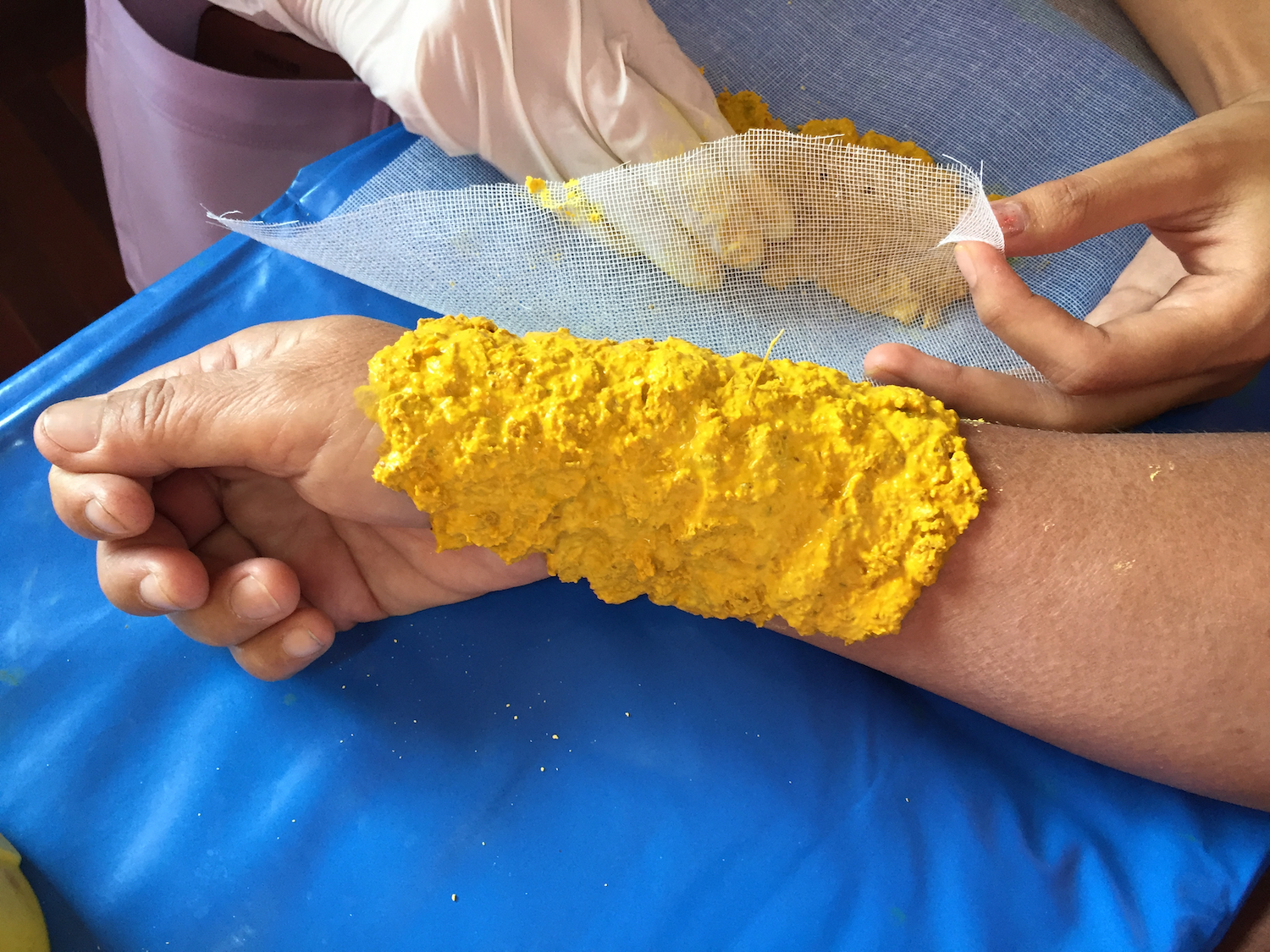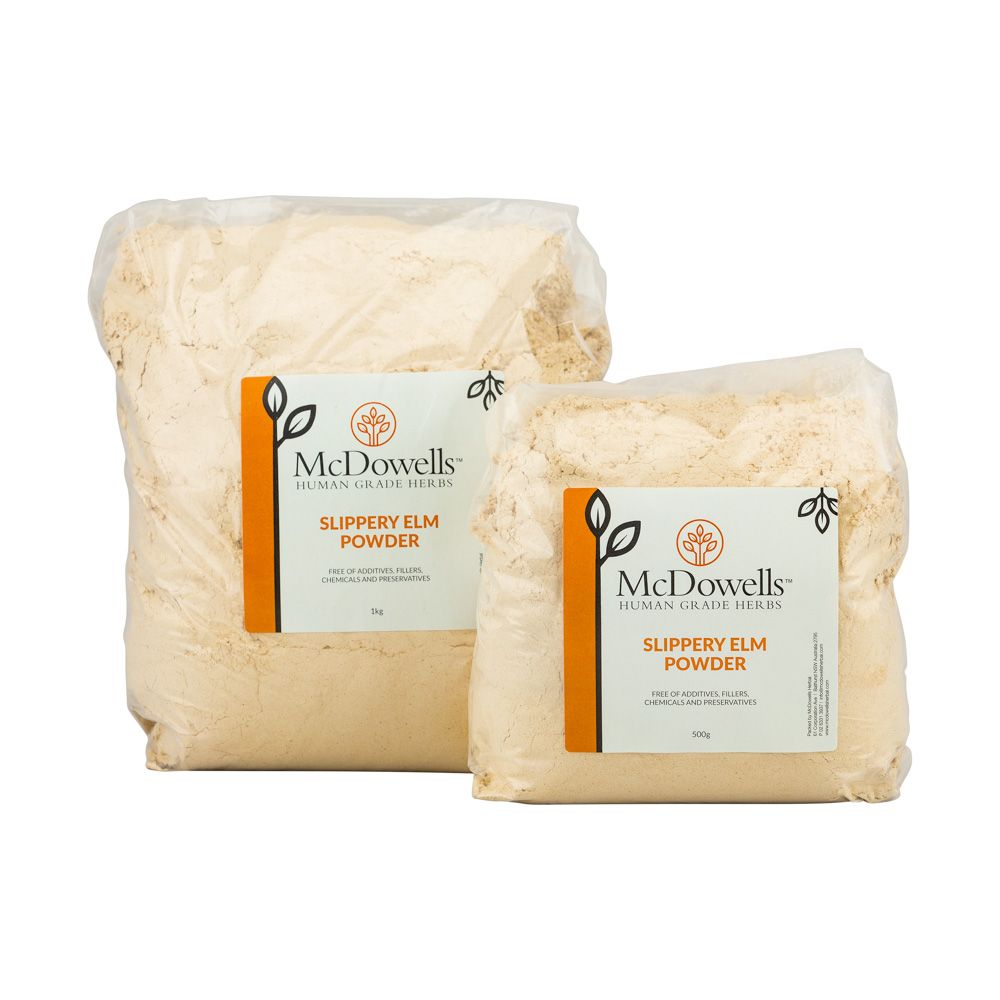The practice of applying poultices to the body goes back a long way and was a major way in which medical results were achieved. It was also something which remains in our cultural consciousness as although we all know what a poultice is, very very few of us actually use them at all or maybe, have never even seen them used.

There are remnants of the poultice still found in the practice of "Blistering" which is really a poultice gone wrong.
Let me explain...
In medieval medicine, the Doctors of the day wanted to produce immediate and dramatic results to convince their patients that their medicines were powerful and therefore worth the money they charged. Most medical practitioners used very strong formulations which produced violent purging (vomiting, diarrhea, sweating, mucus production, skin eruptions etc.) in the internal medicine department (try taking salts of mercury, arsenic and antimony by mouth, for example). In the poultice department they wanted to produce a dramatic effect on the skin and "blistering" was one of those.
I would suggest the reason that we somehow all know what a poultice is, has something to do with the business of our ancestors watching a family member being subjected to some such brutal poulticing, an overly strong mustard plaster applied to the chest to treat congestion or a scalding hot mud pack applied to a boil. All this while everyone (except the victim) was standing around calmly saying how good it was for the squirming, screaming suffering patient probably being held down by several people. A very powerful learning experience and likely to persist for several generations, I am sure you will agree.
Poultices are now all external treatments usually applied directly to the skin although they can be applied over a cloth or paper barrier to protect the skin from damage. Like any other medicine a properly managed poultice will produce positive effects and no excess pain or tissue damage.
Boils and spontaneous discharges of pus are interesting and should be encouraged to run their course. A good strong immune system is quite capable of expelling toxins from the body. The infection which sets up in a boil should not be treated with antibiotics but rather seen as part of the mechanism which will soften and break open the skin at the site of the problem so that the whole mess can be expelled.
Lancing boil or treating it with antibiotics can increase the risk that the expulsion is incomplete and the body is left to deal with the toxic debris in some other way. Also have you noticed that boils don't become infected sores, they do their thing and close up and no infection seems to get in through the opening! If you were worried about infection you can crush some fresh Garlic to include in your poultice with Castor Oil for your tetanus treatment of a dirty wound. Garlic is a powerful and natural antibiotic.
The reasons for poulticing are as follows;
a. To bring heat to an area. Heat improves circulation and mobility of fluids within the adjacent tissue. This can speed healing; minimize scarring; reduce muscular spasm; or assist in drawing toxins together to be expelled from the body.
b. To act as a drawing agent; to suck or to assist the flow of debris or toxins through openings in the skin.
c. To hold in contact with the skin herbs; beneficial to the healing processes taking place in the area of the poultice. Elecampane, Garlic, Castor Oil are examples of herbs used in this way.
All poultices consist of a carrier; (some sort of mash, mud or slurry) and some healing substances usually herbs, oils or chemical substances mixed with the carrier or applied under it. The carriers can be applied hot, warm or cold (never so hot as to burn or blister) Poultices are usually held in place by loose bandages or wrappings of some sort and are therefor often difficult to apply over bulky muscular areas of horses. They are however ideal for the lower legs which is an area subject to many problems in competition horses.
In a well formulated poultice the carrier also has beneficial properties in itself. There are a limitless variety of carriers and you can use your own imagination in formulating your own.
Some Poultice Mixes which I recommend are as follows but they can all be combined or varied to suit many different situations:
Linseed Meal Porridge: mixed with Linseed Oil and Minced Elecampane Leaves applied warm to any ligament or bone injury. Breaks, Chips, Splints, Torn or Bowed Tendons will speed up recovery by a factor of 3 or 4. They can be replaced every couple of days.
Slippery Elm Powder Poultice: mixed with Castor Oil. These can be made quite small and used as a drawing poultice for cleaning out wounds or infected material. Please note that if using castor oil, (which is a good enough drawing agent to make a tetanus needle unnecessary in the case of a deep puncture wound), you must only use it when there is a hole to draw through. Castor oil in the eye will draw metal filings out of an eye wound and on the teats will draw and clear mastitis between one feed and the next.
Rosemary Oil, Wintergreen Oil, Mustard, Cajeput (Tea Tree) Oil are all heating agents. Mustard and Cajeput being quite capable of blistering as they heat by irritation. Most "blisters" contain mustard which should only be in small enough quantities to heat but not blister. A heating poultice should produce no more than a little swelling, any more and it can be counter productive. Certainly anything which blisters is often doing much more harm than good.



